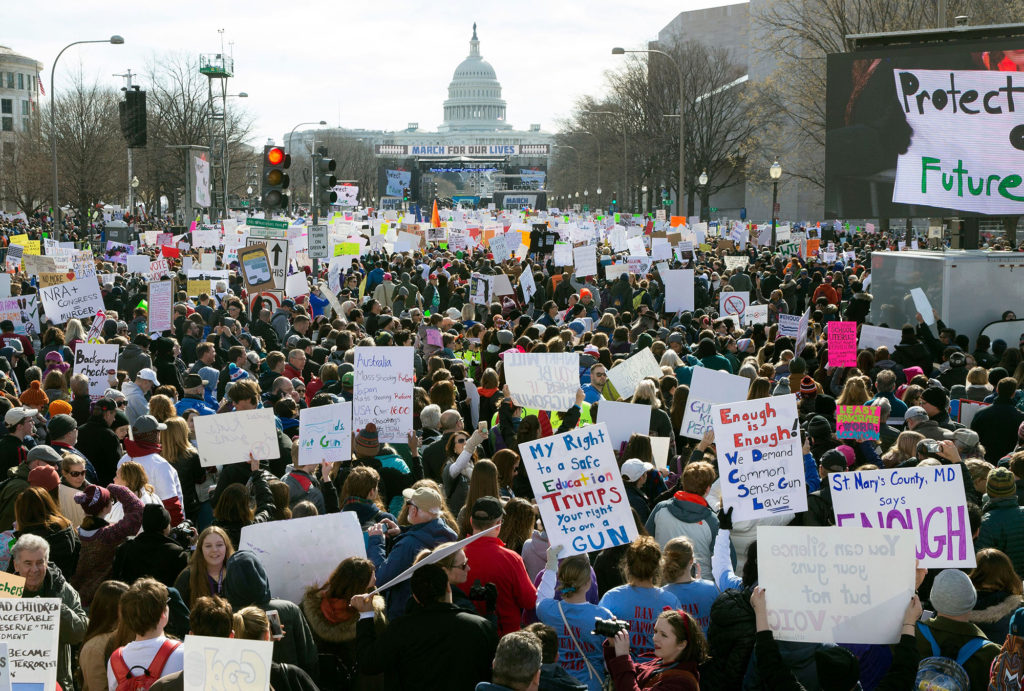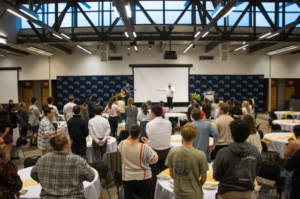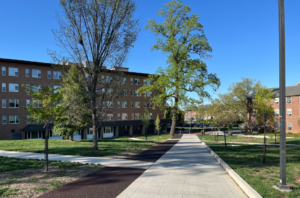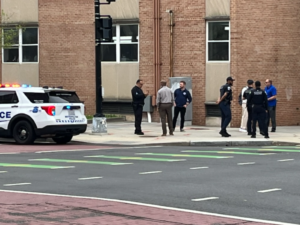Op-ed: Okay, We Marched. Now, Let’s Talk.
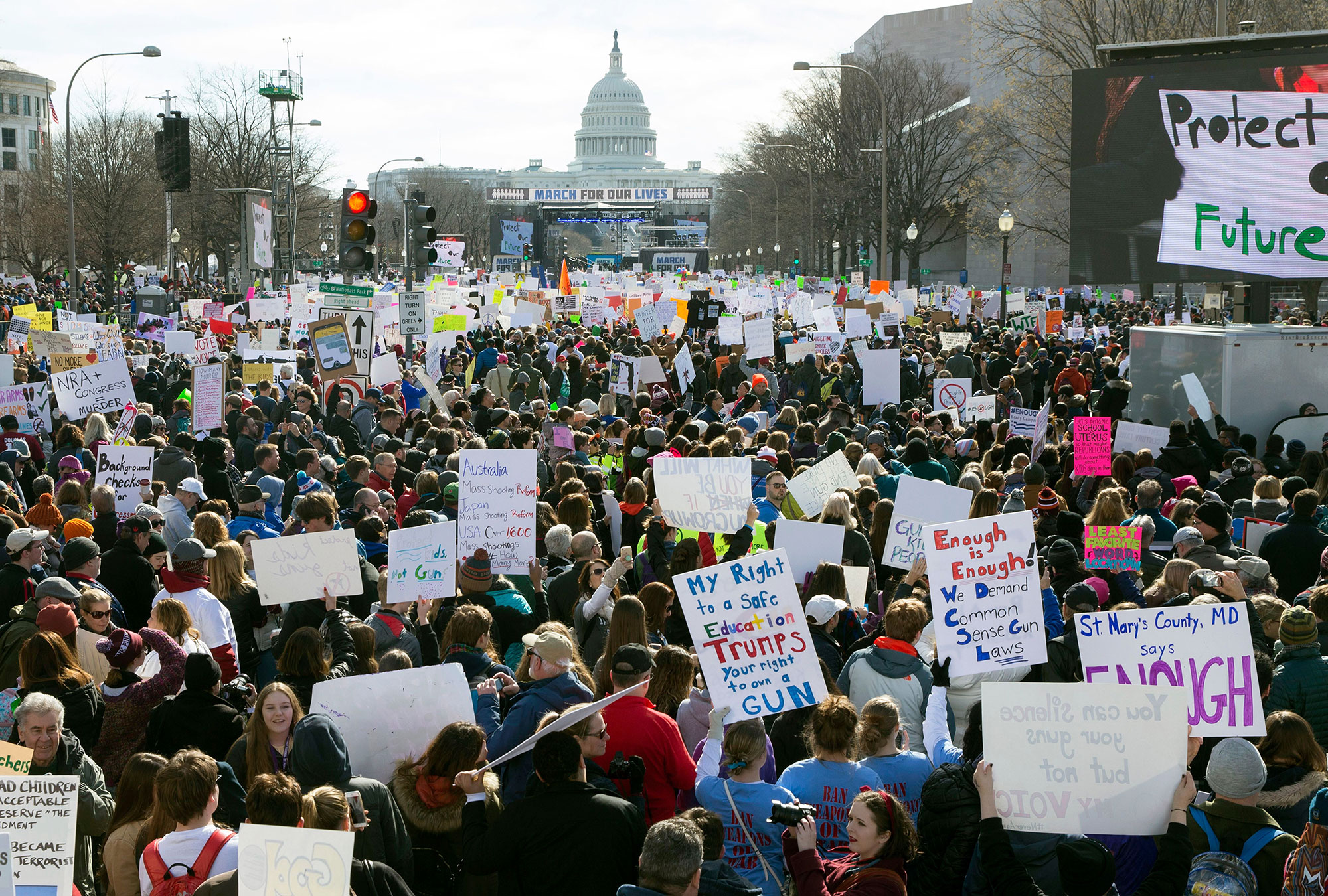
By John Connolly, Class of 2019
I was in the fifth grade when the guidance counselor came to our class so he could discuss something our teacher called “very important.” I knew what a lockdown was. I knew that we had to do lockdowns because of events like Columbine and Virginia Tech. But still, every time I heard that message come over the loudspeaker, my heart pounded a little faster and I was scared.
I am lucky—I have never been in a real lockdown. But too many young people aren’t as lucky. For me, the fear of a school shooting is something I confronted when I was older—just like I confronted the introduction of iPhones and Amazon’s Alexa. But that is not the case for today’s generations of kids. Getting under a desk and remaining silent has become routine. It is no different than a fire drill or a tornado drill.
Now, I am not arguing that we shouldn’t have these drills—of course we should. But when kids are trained to walk out of their school with their arms up as if it’s a normal occurrence, we as a society need to react. I participated in the March For Our Lives. I didn’t march because I hate guns. I didn’t march because I think the NRA is evil. If you asked me to give three reasons for why I marched, I would respond “for our children, our children, and our children.”
The response to the Parkland shooting is deeper than our country’s debate about gun control. Yes, I do believe that we need to enact laws to reform the gun culture in our society—like banning bump stocks and assault weapons, requiring universal background checks, and allowing our national institutions to research gun violence like an epidemic—but we also have to have a conversation. We need to ask ourselves, “is this the kind of life we want our children to have?” Children shouldn’t have to learn CPR so they can try and save their bullet-ridden friends when a shooter enters their school. First graders should worry about what game they are going to play at recess—not if they are going to be alive at recess. And it’s not just schools—it’s the offices, the military bases, the street corners, and the family homes. The truth is we don’t talk about it—we don’t talk about the fact that we live in a society where we will let a convicted felon who is stalking a victim of domestic abuse still own a gun.
I didn’t talk about how I felt for a long time. It took Sandy Hook for me to realize I couldn’t remain silent any longer. I realize a lot of people may disagree with me—I respect that. So let’s have the conversation. Let’s stop going to our corners. Let’s come together and think about the future of our country. Let’s come together to say “enough is enough.”

